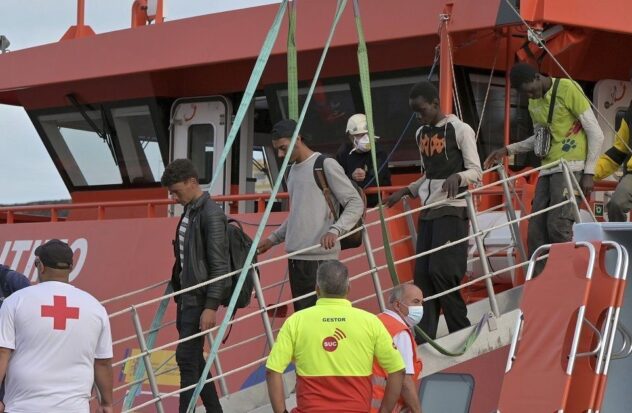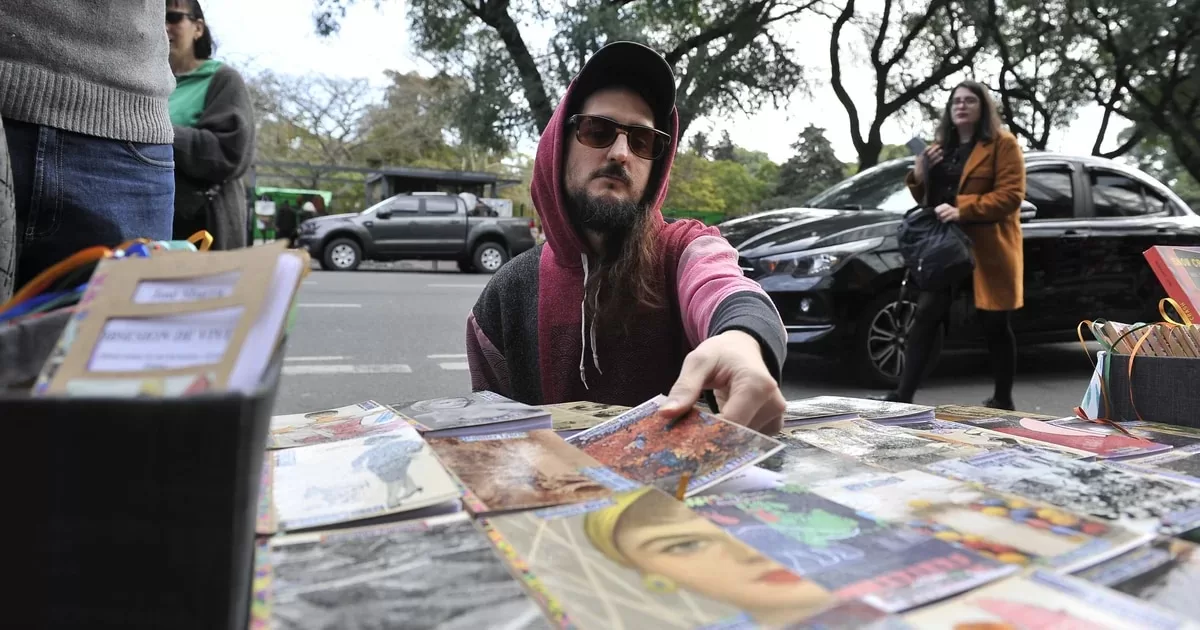A small Senegalese boy who landed recently was fainting every few minutes, worrying doctors who were unable to determine the cause. Other migrants finally explained: The boy had seen his parents die during the arduous journey from West Africa. Their bodies had been thrown overboard into the Atlantic Ocean.
“We have no medicine for this,” said Inmaculada Mora Peces, a 54-year-old emergency doctor who treats migrants arriving on the island of El Hierro.
Mora Peces is among a growing number of people raising the alarm about the archipelago’s struggle to manage thousands of children and teenagers travelling alone to EU territory from Senegal, Mali and other African nations fleeing poverty, conflict and instability.
Spain’s parliament will vote on Tuesday on whether to consider a proposal to reform the Immigration Law and force other regions to take charge of some of the children now stranded in the Canary Islands in precarious conditions.
The initiative has sparked a national political debate and there is no guarantee that it will be approved.
The conservative Popular Party, the main opposition group to the left-wing national government, is divided. On the one hand, it is the minority partner in the Canarian regional government, and its majority partner, Coalición Canaria, is urging it to support the agreement. On the other hand, the far-right party Vox, which campaigns against illegal immigration and especially against unaccompanied minors, is threatening to withdraw from its coalition governments in other regions if the PP accepts any agreement to relocate underage migrants, even on a voluntary basis.
Under Spanish law, the authorities in the regions where the children arrive are responsible for their care. But the Canary Islands government says it is overwhelmed, with more than 5,500 minors in its care, far exceeding its capacity of 2,000.
“This is a humanitarian tragedy,” said Francisco Candil, regional deputy minister for social welfare.
In the Canary Islands, not only is there a lack of physical space to house them, but the regional government is also having trouble hiring trained professionals to work with young migrants on the islands, some 1,300 kilometres (800 miles) from mainland Spain.
As a result, children and adolescents are languishing on the islands and are not receiving the protections they are entitled to under Spanish and European law, such as education and healthcare. Spanish media have reported overcrowded centres and cases of abuse and mistreatment. On the island of Lanzarote, authorities have erected temporary tents to house the new arrivals.
Candil warned that the situation is only expected to worsen as ships continue to arrive from the coasts of Senegal, Mauritania and Western Sahara to the Spanish islands, located about 100 kilometers (60 miles) off the west coast of Africa.
Nearly 20,000 men, women and children have arrived in the Canary Islands so far this year, an increase of 160% compared to 2023. And that’s even before the peak crossing season begins in the autumn, Candil said.
The EU signed a €210 million deal with Mauritania this year to stop smugglers from sailing to Spain. But the agreement has had little effect on arrivals so far.
If the bill does not make it through the Spanish Congress of Deputies on Tuesday, “it will be a failure for Spanish and European society,” Candil said. With a population of 48 million people, it should not be difficult for mainland Spain’s regions, or autonomous communities, to take in a few hundred children, he said. The Canary Islands would continue to care for the majority of unaccompanied minors.
Spanish Ombudsman Angel Gabilondo called on Friday for urgent legal and structural reforms after visiting two shelters for migrant minors in Tenerife.
“You only have to go to a centre to see the kids and feel their pain,” said Gabilondo. “They have been in the centres for months and they don’t see any future. (…) We are talking about human beings, not merchandise.”
Meanwhile, professionals like Mora Peces say they feel helpless in the face of the arrival of so many children and adolescents in terrible conditions after the dangerous ocean crossing.
“Today I arrived at the guardhouse and my colleagues were crying. So I started working and ended up crying too,” wrote Mora Peces on X last week, a post that already had more than 864,000 views.
Last week, doctors tried to save a two-year-old girl who arrived by boat from Senegal with her eight-year-old brother and mother. The girl was separated from her family and died despite attempts to save her.
Mora Peces had to break the tragic news to her mother. The woman asked for a photo of her daughter’s body, which Mora Peces requested from the funeral home.
Although the vast majority of unaccompanied minors arriving are teenage boys, Candil and others say they are concerned that more and more young children are arriving, especially girls traveling alone — nearly 200 in the past eight months. “It’s very unusual,” Candil said.
Girls are fleeing forced marriages, abusive relationships, persecution or simply seeking a better life, said Siham Khalifa El Abdi of the SAMU foundation, which runs shelters specifically for unaccompanied girls.
Among the girls in SAMU’s care is a teenager who fled Mali because of her sexual orientation. During her five-month journey to Spain, she was assaulted and forced to have sex with older men in exchange for food.
“These girls are very damaged by everything they have been through,” said Khalifa El Abdi.
Mora Peces, a doctor working in El Hierro, said she was horrified by the language used by some politicians in Madrid to discuss the issue, including those from the Popular Party and Vox, who have called for the Spanish army and navy to be deployed to stop migrant boats.
She sees politicians and even ordinary people calling migrants “rapists” and “criminals,” an image she describes as totally opposite to the reality of the “little people in dramatic situations” she serves.
“What is being discussed at parliamentary level, what to do with children, they are dehumanized, it seems like they are not people,” she said.
Source: With information from AP


